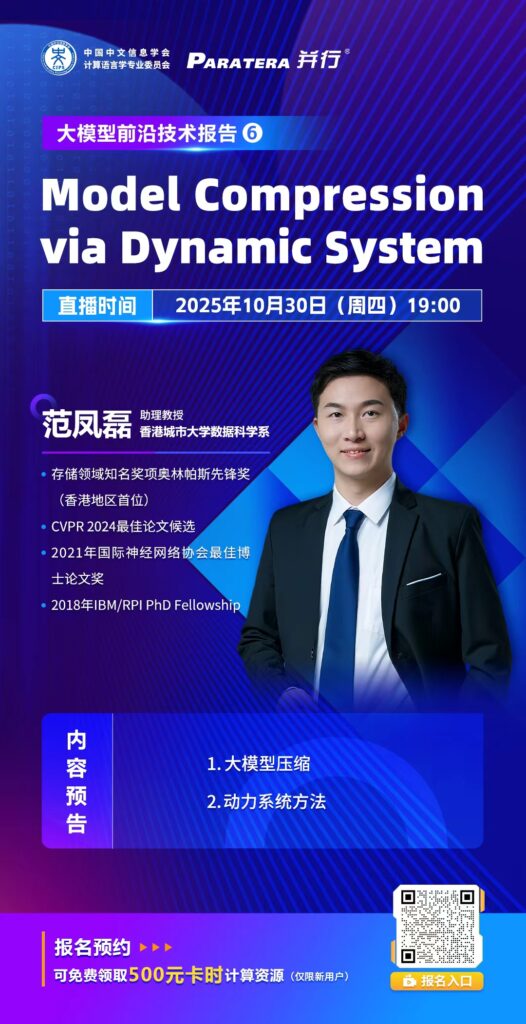大模型前沿技术报告系列直播课是由中国中文信息学会计算语言学专业委员会主办,并行科技承办的系列公益直播课,旨在分享大模型技术前沿学术成果和普及大模型算力应用,面向相关领域的科研工作者和高校师生展开。
大模型前沿技术报告系列直播课固定播出档期为每月第三周周四19:00。每期邀请一位大模型领域的知名专家学者,进行约一小时的学术报告分享。直播课的播出平台为:视频号【并行科技】、B站【并行科技】。欢迎观看与交流。

特邀讲者
Dr. Fenglei Fan is currently an Assistant Professor with Department of Data Science, City University of Hong Kong. He is the Chief Scientist of the Huawei Key Project. His primary research interests lie in NeuroAI and its applications in model compression. He was the recipients of the IBM AI Horizon Scholarship, the 2021 International Neural Network Society Doctoral Dissertation Award, andHe won OlympusMons Pioneering Award, a prestigious award in the field of storage. He has one paper selected as one of few 2024 CVPR Best Paper Award Candidates, one won the IEEE Nuclear and Plasma Society IEEE TRPMS Best Paper Award, and one ESI highly cited paper. He organized special issues in journals like IEEE TRPMS, presented three tutorials in AAAI2023, IJCNN25, and WWW2025, and served as (senior) program committee members in AAAI and IJCAI.
直播摘要
Deep learning, represented by deep artificial neural networks, has been dominating numerous important research fields in the past decade. Although the invention of the neural network was to mimic a human’s brain, the current development of deep learning is not primarily driven by the increasingly growing understanding to the brain. Brain is the most intelligent system we have ever known so far, although the brain remains vastly undiscovered, it is clear that the existing deep learning still goes far behind human brain in many important aspects such as efficiency, interpretability, memory, etc. Given the incredible capability of the human brain, we argue that neuroscience can always offer support for deep learning as a think tank and a validation means. In this talk, we discuss drawing the mechanism of genome bottleneck into deep learning, with an emphasis on solving problems in model compression, which is to facilitate the deployment of large models.





